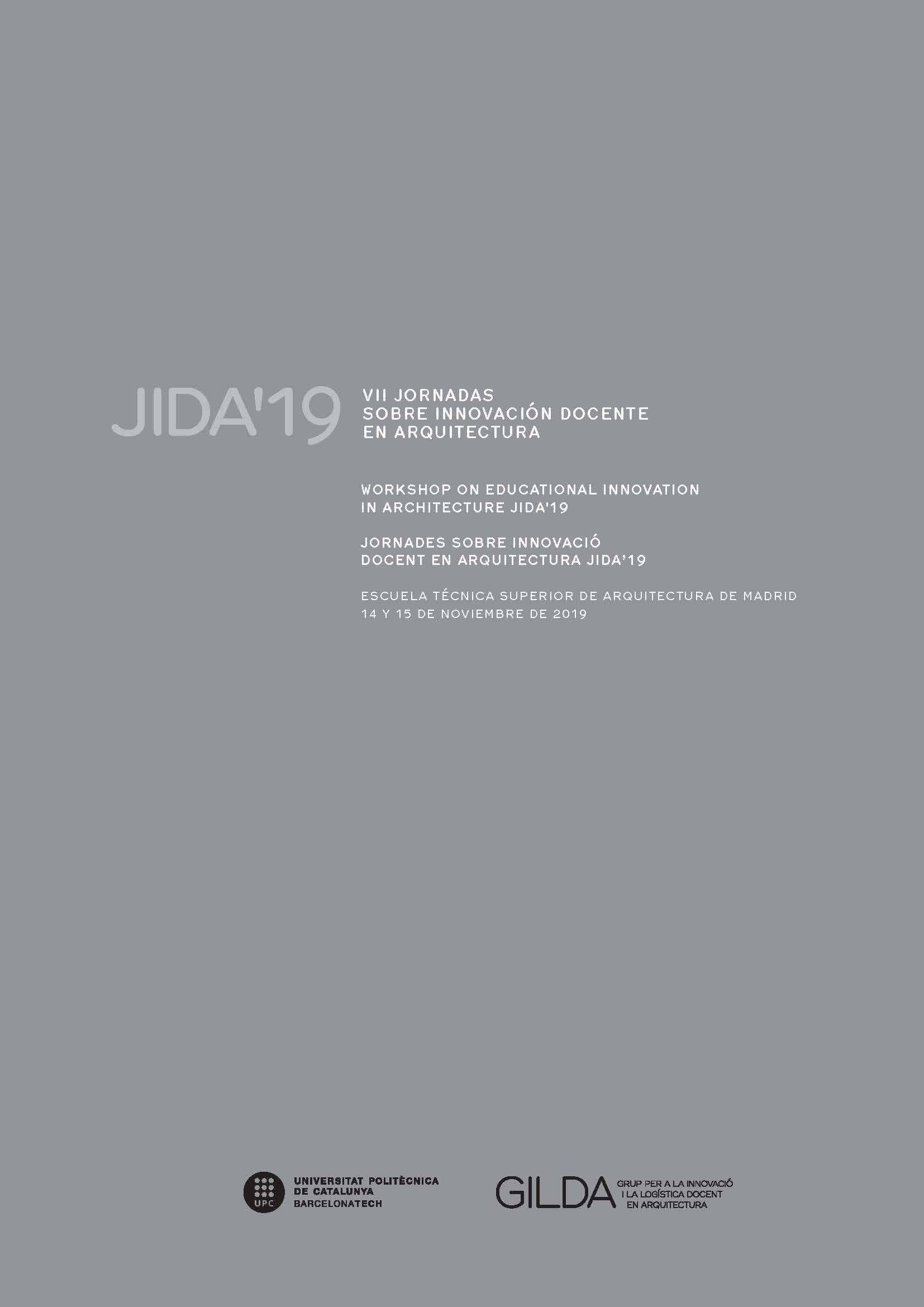Proyectar deprisa, proyectar despacio. Talleres de aprendizaje transversal
DOI:
https://doi.org/10.5821/jida.2019.8311Resumen
El cambio generacional observado en los alumnos que habitan las aulas actualmente hace necesaria una adaptación del modo tradicional de enseñar y aprender arquitectura. La presente comunicación quiere compartir una experiencia docente llevada a cabo en la asignatura Proyectos, cuya propuesta innovadora emerge de la combinación de distintos ritmos de trabajo e ideación para lograr el aprendizaje de la metodología proyectual. Por un lado, se mantiene el ritmo de trabajo tipo taller de proyectos a lo largo del semestre, a lo que denominamos "arquitectura lenta". Por otro lado, se incorporan una serie de talleres transversales de desarrollo puntual y guiados por una metodología ágil, a lo que denominamos "arquitectura rápida". La incorporación de un ritmo más ágil se adapta a las necesidades de los alumnos de una nueva generación, permitiendo tener una visión global del ciclo proyectual, recibir feedback más inmediato sobre las propuestas diseñadas y trabajar en formato colaborativo.
Citas
ACASO, M. (2013). rEDUvolucioÌn. Hacer la revolucioÌn en la educacioÌn. Barcelona: PaidoÌs.
ARGYRIS, C. y SCHÖN, D. (1978). Organizational learning: A theory of action perspective . Reading, Ma.: Addison-Wesley.
BROWN, T. (2008). “Design Thinking†en Harvard Business Review, 86(6) 84-92.
CSIKSZENTMIHALYI, M. (1997). Flow. Una psicologiÌa de la felicidad. Barcelona: KairoÌs.
d.School at Stanford University (2008). An introducción to Design Thinking Process Guide. Disponible en: <https://dschool-old.stanford.edu/sandbox/groups/designresources/wiki/36873/attachments/74b3d/ModeGuideBOOTCAMP2010L.pdf> [Consulta: septiembre 2019]
OECD (2012). The Nature of Learning. GuÃa del practicante. Paris: OECD Publishing. Disponible en: <http://www.oecd.org/education/ceri/The%20Nature%20of%20Learning.Practitioner%20Guide.ESP.pdf> [Consulta: agosto 2019]
OECD (2017). The OECD Handbook for Innovative Learning Environments. Paris: OECD Publishing. Disponible en: <https://doi.org/10.1787/9789264277274-en> [Consulta: agosto 2019]
VILANOVA, N. y ORTEGA, I. (2017). GeneracioÌn Z. Todo lo que necesitas saber sobre los joÌvenes que han dejado viejos a los millennials. Barcelona: Plataforma Editorial.
World Economic Forum (2018). The Future of Jobs. Disponible en: <http://www3.weforum.org/docs/WEF_Future_of_Jobs_2018.pdf> [Consulta: septiembre 2019]






















